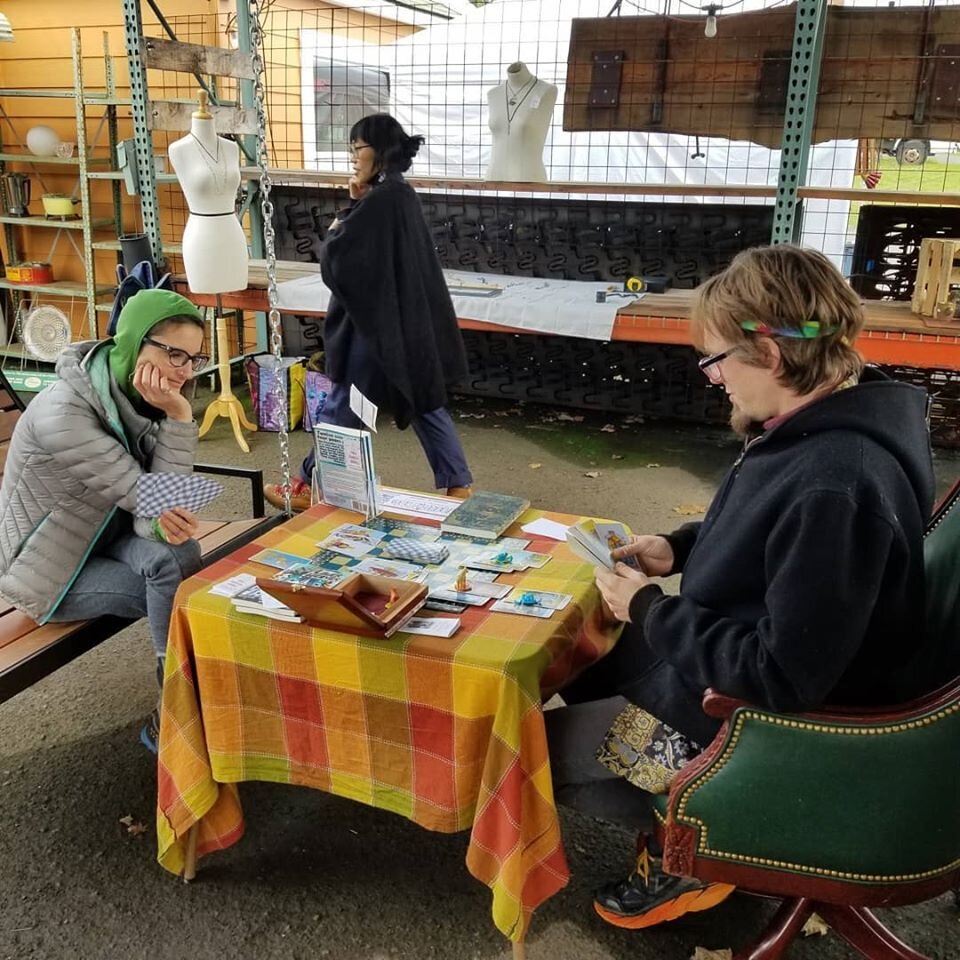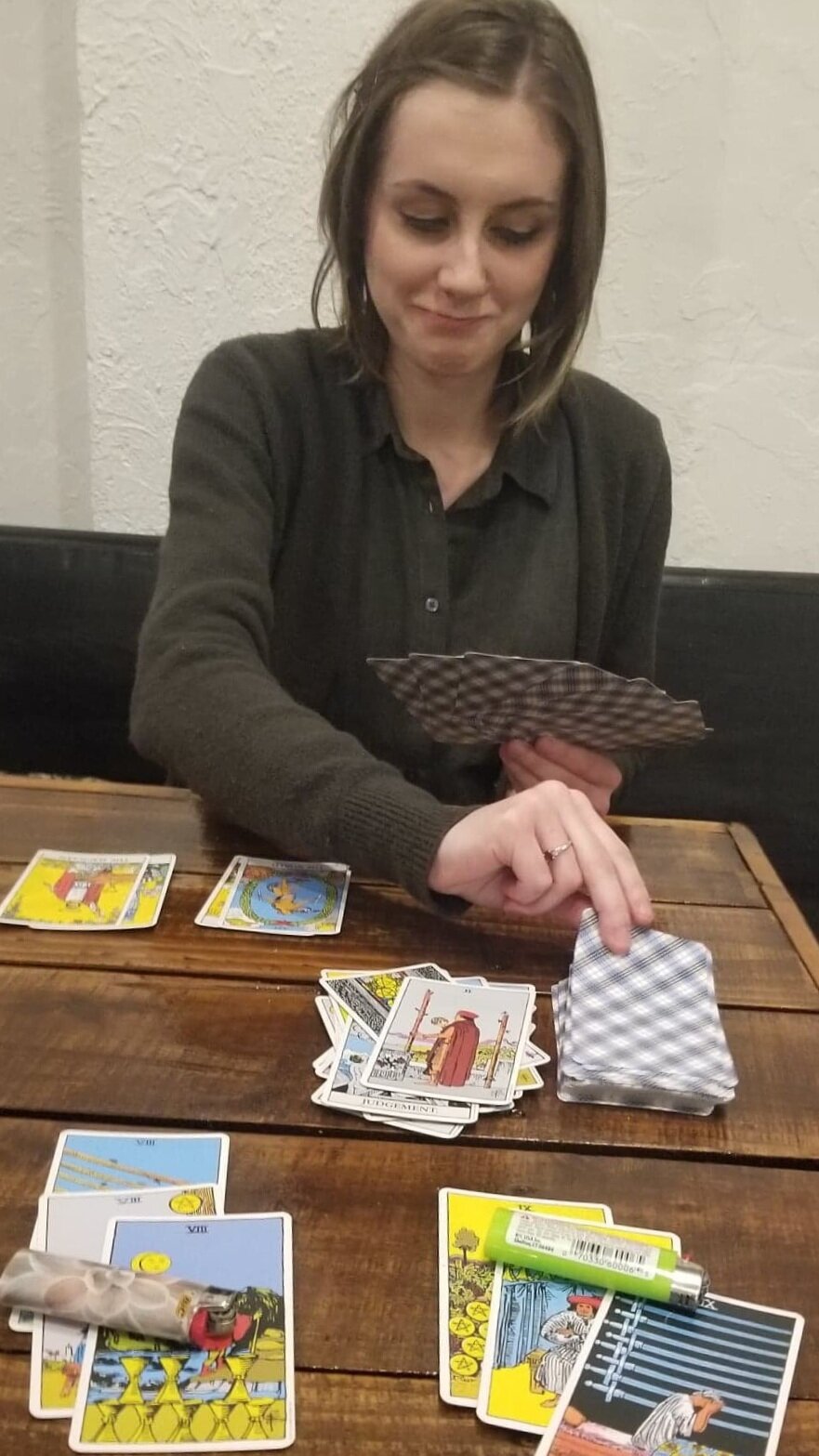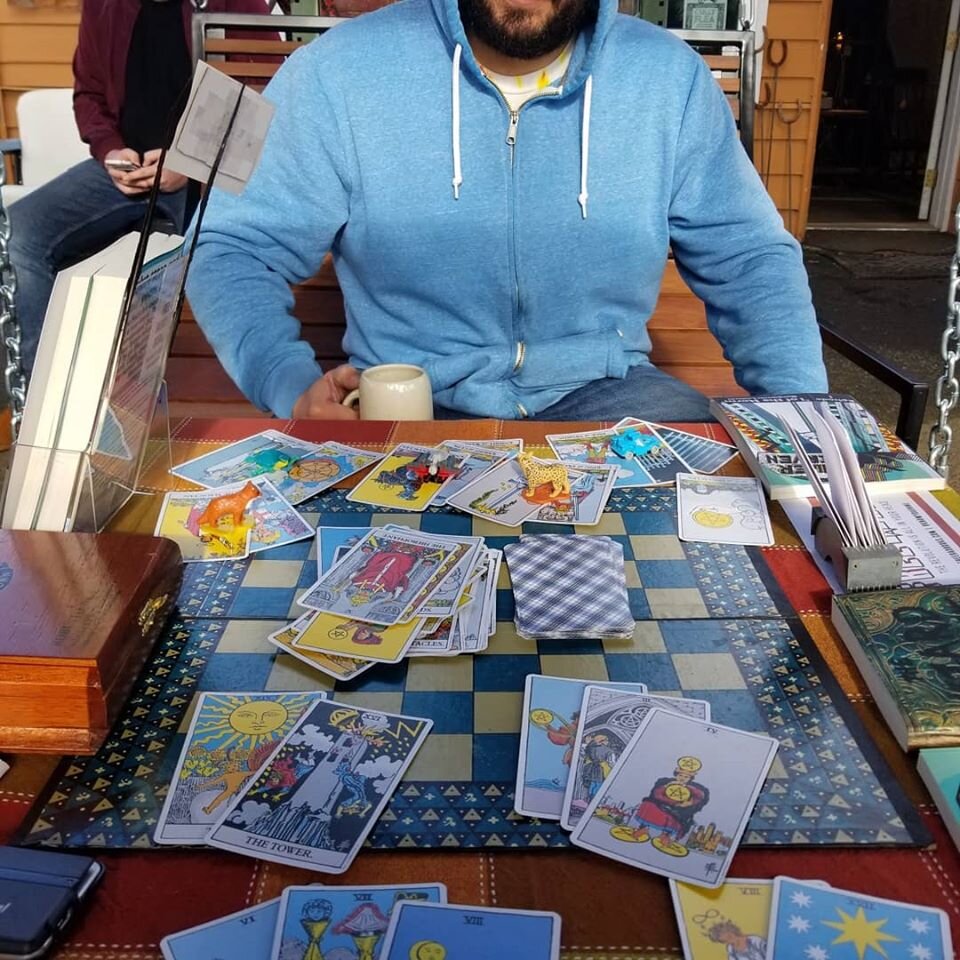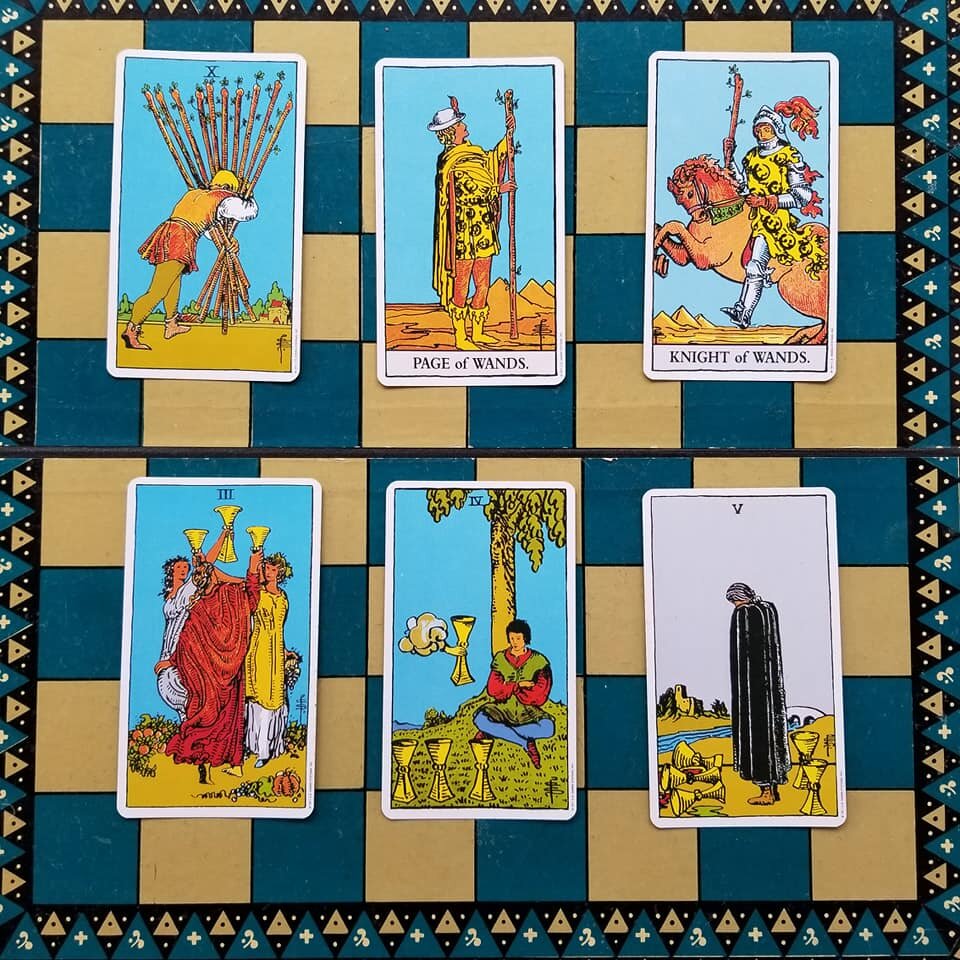Fortuna: A Tarot Card Gambling Game
created by Benjamin Loomis
Fortuna is a card game that uses a tarot card deck to gamble for items of value.
Have you ever been interested in tarot, but don’t trust anyone who claims some sort of mystical authority or ability to read your future? Same here.
Fortuna lets you get to know the tarot cards without all of the New Age hoke, and have a new fun game to play with your friends.
And while this is an all-new set of rules, using tarot cards to play games instead of a “divining” tool is closer to the deck’s original 15th-century purpose.
Though, if you want to, instructions on how to read your cards at the end of the game are included as well. Because there is wisdom in these cards, once you start looking you’ll see the meanings are more like persistent human archetypes/trope clouds than prescriptive remedies or actions… but now I’m getting ahead of myself- more on that at the bottom of the page!
For now, please allow me to present…
Fortuna: How to Gamble with a Tarot Card Deck
Things you need to play:
1 Tarot Card Deck*
2 (or more) Players
at least 1 Item of Value per player (to wager)
(*These rules use the traditional Rider-Waite tarot card deck of 78, but should be playable with any other variants of the tarot card deck.)
To Begin:
Decide the Items of Value you want to wager. Set these to one side of the playing space (If this is a friendly game, you can play with spare change, tokens, or whatever happens to be in your pockets. But it’s more fun to play for pink slips and property deeds)
One player shuffles the deck seven times.
The player to their right cuts and deals seven cards to each player’s hand.
The undealt remainder of the deck is placed faced down in the center of the playing space.
The top card of the deck is flipped face-up next to the deck. This is the discard pile.
The player to the left of the dealer goes first.
Turn Order:
If you know the rules of rummy, you know the basic flow of the game. On each turn:
Draw Phase
Draw the top card from either the deck or the discard pile.
Play Phase
Cards are played on your side of the table. To play cards, you must either make a Run or a Set.
A Run is three cards of the same suit in order. (e.g. The 3, 4, and 5 of Pentacles)
A Set is three cards of the same rank. (e.g. Three 10s, Three Kings, Three Aces, etc.)
Two example Runs: 10, Page, Knight of Wands, and the 3, 4, and 5 of Cups.
Two example Sets: Three Knights, and Three 9s.
Three Items of Value have been Taken by the closer player.
Take Phase
When a Set or a Run is played, you may take one Item of Value and place it upon the cards just played.
You may either take an unclaimed Item, or an Item your opponent has already claimed with a previous Run or Set.
Discard Phase
At the end of each turn, you discard a card. (You don’t need to discard on your last turn to end the game)
Triumphs:
The 22 Triumphs are the cards with proper names like The Wheel of Fortune, The Tower, The Lovers, etc. Each Triumph has a number value as well. All Triumphs all interchangeable as far as the game rules, and can be used in four ways:
Example of working Sets completed with Triumph cards. The Hanged Man, (Triumph #12) stands in for a Knight card. The Hermit (Triumph #9) stands in for a 9.
Two Triumphs are a Triumph Pair, equivalent to a Run or a Set, and can be played to Take an Item.
A single Triumph may be discarded (as the player’s discard for the turn), to draw two cards from either the discard pile or deck. This ends the player’s turn. On the next player’s turn, that player may not pick up the Triumph that was just discarded and must draw their card from the deck.
A Triumph may also be discarded to discard the player’s entire hand, shuffle the discard pile, and draw the same number of cards in their hand (minus the Triumph discarded). This ends the player’s turn.
A Triumph may also complete a Run or Set (using the Triumph’s number value. See example picture).
Ending the Game:
The game ends when either player has no cards in their hand. When the game ends, each player wins the Items currently on their side of the board.
The goal then is to try to end the game when you have Taken the Items of Value you wish to keep or gain on your side of the playing space.
Additional Rules:
Runs or Sets may be extended with single cards by either player during the Play phase. (e.g. If one player has the 2, 3, and 4 of Swords, the other may play the Ace or the 5 of Swords on their side of the playing space to Extend the Run. Extending a Run or a Set does not allow a player to Take an Item, it just gets an extra card out of their hand.
You may play a Set or Run of more than three cards at once. (e.g. Four 10s). Runs or Sets of four or five cards still only allow you to Take a single Item.
You may make multiple Plays in the same turn. For instance, you could play a Run, a Triumph Pair, and discard a Triumph all in one turn, if possible with the cards in hand.
Reading the Cards
When the game ends, each player returns his hand to the deck, and picks up the cards they played during the game, face-down. To read your cards:
Shuffle and invert the cards to randomize their position and direction.
Deal all the cards you into three face-down piles.
Clear your mind. Either keep it clear, or focus on a particular question.
Flip the card on the top of each pile. These three cards are your reading.
If you kept your mind clear, these cards represent a sign of your Past, Present, and Future from left to right. If not, think of them in relation to the question you asked.
Consult a tarot guide to see what each card represents. I haven’t really delved into tarot lore enough to recommend one guide over any others, but the basic, yellow-box Rider-Waite deck has a short and sweet one that’s working for me so far to illustrate the concept. I will update this as my own knowledge grows!
And that’s all there is to it! This isn’t anything mystical, you’re just using your cards to guide your thinking down a certain path. Without feeling any judgment, think about the symbols each card stands for, and reflect on your question, or whatever aspect of your life your mind is led to.
I like this because I like tarot cards, but don’t like mysticism. I like old arcane symbol sets, but I don’t like anyone telling me my fortune. No one knows my life, only me. The only answers are my own. Through Fortuna and the tarot card deck, your reading is a multi-stage mix of subconscious bias, chance, and game theory, in other words, it allows your mind to dance freely with the universe and mankind’s persistent symbols without the interference of another.
It can also be used as an impasse-breaker, to make decisions— just swap out the items you are gambling for with the choices you cannot choose between. This can be helpful for making a neutral, unbiased decision, when the 50/50 chaos of the universe is as good or better as your own perspective.
But why?
Fortuna came into my head while writing the second episode of Lower Heaven— I was writing the action-climax, which happens to take place on the Lower Heaven version of a riverboat casino. I had just written a fight scene, and didn’t want to roll immediately into another.
I landed on a card game. In the book Regina plays Fortuna against the Capitan of the Xbullix riverboat, to gamble for the lives of her companions. And I always hate in fiction when the players play a card game but you don’t actually get to see any of the cool plays or game mechanics in use, so I whipped up a rudimentary set of rules and wrote the scene. Episode 2, (aptly named O Fortuna), is available now. Get a copy here or start the quest from the beginning with Episode 1, I of the Storm today.
Cheers y’all, viva la!
-Ben










